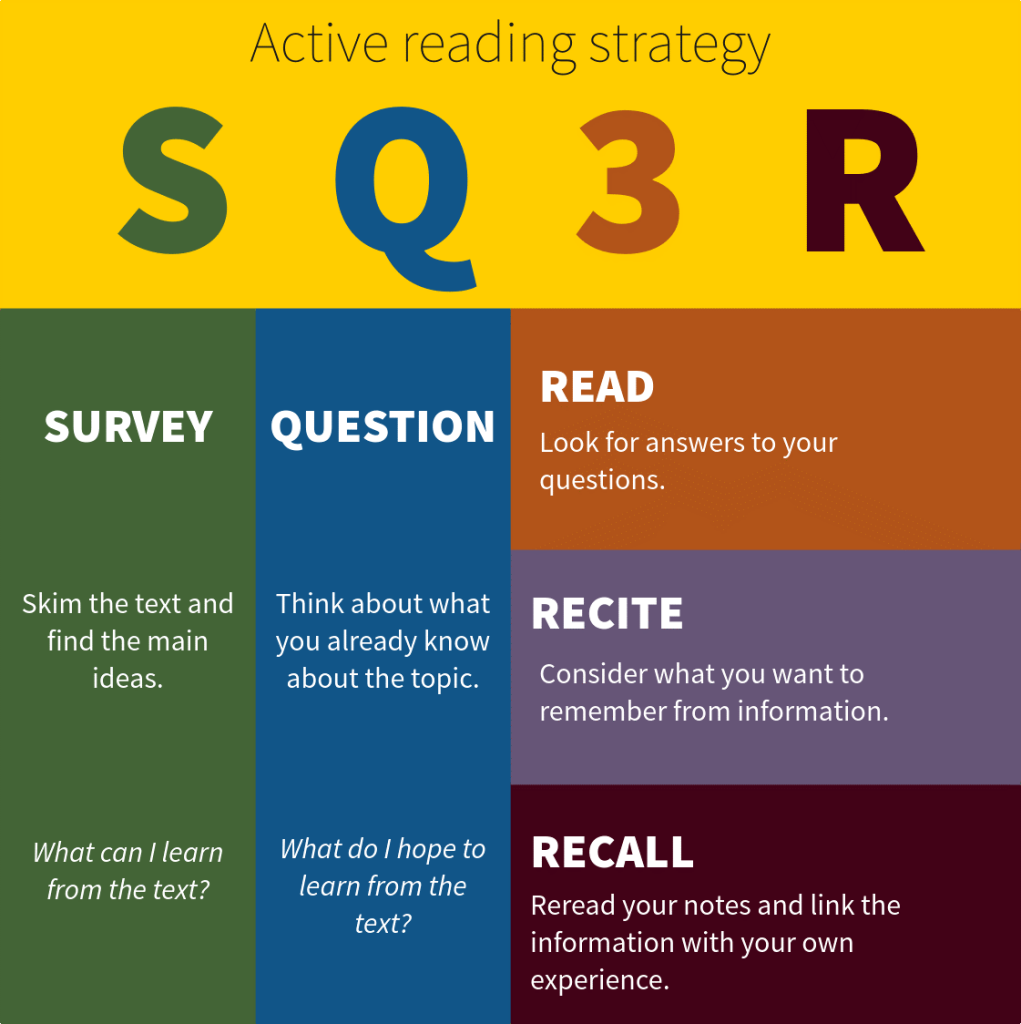Achieving your dream of clearing the SSB exam and joining the armed forces is no easy feat, but it’s a goal that countless aspiring candidates strive for with unwavering determination. However, as many have discovered, the path to success is not always straightforward. Oftentimes, even those who dedicate countless hours to preparation find themselves struggling to maintain the focus and concentration necessary to excel in the rigorous selection process.
The good news is that the secret to unlocking your full potential may lie in simple, yet powerful, strategies that can help you optimize your cognitive abilities and stay on track towards your goals. In this comprehensive guide, we’ll dive deep into the 12 Easy Tips for Better Concentration that have helped countless individuals overcome the challenges of maintaining focus and concentration, empowering you to approach your SSB preparation with renewed vigor and confidence.
1. Understand the Importance of Sleep
One of the most fundamental, yet often overlooked, aspects of maintaining focus and concentration is the quality and quantity of your sleep. As the old adage goes, “A lion always sleeps well until he feels hungry.” The same principle applies to the human mind – without adequate rest, your ability to stay alert, focused, and mentally sharp will be severely compromised.
Studies have shown that a good night’s sleep of at least 6-8 hours is essential for optimal cognitive function. During sleep, your brain consolidates memories, processes information, and recharges, setting the stage for a more productive and focused day ahead. Neglecting this basic need can lead to a host of issues, from difficulty concentrating to decreased problem-solving abilities and even impaired decision-making.
To ensure you’re getting the rest your mind and body need, establish a consistent sleep routine, avoid screens before bedtime, and create a sleep-conducive environment that is dark, cool, and free from distractions. By prioritizing your sleep, you’ll be well on your way to unlocking your full potential and excelling in your SSB preparation.
Also Read | 6 Simple Ways to Become a Better Communicator
2. Embrace the Power of Yoga and Meditation
In the fast-paced, information-saturated world we live in, the ability to quiet the mind and find inner calm has become increasingly important for maintaining focus and concentration. That’s where the ancient practices of yoga and meditation come into play.
Numerous studies have demonstrated the profound benefits of these mindfulness-based techniques, which can help reduce stress, improve cognitive function, and enhance attention and focus. By engaging in deep, focused breathing exercises and cultivating a state of present-moment awareness, you can train your mind to stay grounded and centered, even in the face of distractions or challenging tasks.
Start by setting aside just 10-15 minutes each day to practice simple breathing exercises or guided meditations. Over time, you’ll notice your ability to stay present and focused during your SSB preparation and beyond. Remember, a calm and centered mind is the foundation for peak performance.
3. Embrace the Power of Breaks
While it may seem counterintuitive, taking regular breaks is essential for maintaining focus and concentration. The human mind is not designed to operate at peak efficiency for extended periods without respite. In fact, research has shown that the most productive study and work sessions often involve a combination of focused work and strategic breaks.
The recommended approach is to study or work for around 40 minutes, then take a 10-minute break to recharge. During these breaks, make a conscious effort to step away from your study materials and engage in activities that can help reset your mind, such as taking a brisk walk, practicing deep breathing, or simply stepping outside to enjoy some fresh air.
By incorporating this “study-break” rhythm into your routine, you’ll not only avoid the dreaded mental fatigue that can lead to a loss of focus but also enhance your overall productivity and learning outcomes. Don’t be afraid to experiment with different break durations and activities to find what works best for you.
4. Mastering the SQ3R Method
When it comes to effective studying and information retention, the SQ3R method is a tried-and-true approach that can help you stay focused and engaged throughout the learning process. This five-step technique, which stands for Survey, Question, Read, Recite, and Review, provides a structured framework for approaching any study material, whether it’s a textbook, research paper, or online resource.
Here’s how it works:
- Survey: Skim through the material, taking note of titles, subtitles, captions, and any other key information that can provide a high-level overview of the content.
- Question: Turn the titles and subheadings into study questions that you can keep in mind as you read, helping you stay focused on the most important information.
- Read: Carefully read through the material, actively searching for the answers to your study questions.
- Recite: After reading, try to recall and restate the key points in your own words, either aloud or in writing. This helps cement the information in your memory.
- Review: Take some time to review the material, either immediately after or at a later time, to ensure the information remains fresh in your mind.
By following this structured approach, you’ll not only improve your focus and concentration during the learning process but also enhance your ability to recall and apply the information when it matters most – during the SSB selection process.
5. Develop a Determined Attitude
As the saying goes, “Where there’s a will, there’s a way.” When it comes to achieving your goals, having a determined and unwavering attitude is often the key to success. This is especially true when it comes to maintaining focus and concentration during the rigorous SSB preparation process.
Cultivating a determined mindset means refusing to let your own doubts, distractions, or setbacks get in the way of your progress. It’s about staying laser-focused on your ultimate objective and refusing to be deterred by the challenges that may arise along the way.
Remember, concentration is like the focused rays of the sun – when scattered, it produces only ordinary results, but when centered on a single purpose, it can generate the force necessary to overcome any obstacle. Embrace this mindset, and you’ll find that your ability to stay focused and productive will soar, propelling you ever closer to your dream of joining the armed forces.
Also Read | 8 Smart Hacks from the Indian Military You Should Know
6. Identify and Eliminate Distractions
In today’s hyper-connected world, distractions are everywhere, constantly vying for our attention and undermining our ability to stay focused and productive. From the constant pings of notifications to the temptation of social media scrolling, these digital distractions can be particularly insidious, sapping our mental energy and derailing our best intentions.
To combat this, it’s crucial to identify and actively eliminate the sources of distraction in your life. Start by taking a honest look at your daily routines and habits – where are you most prone to getting sidetracked? Once you’ve pinpointed the culprits, take concrete steps to minimize their impact, whether it’s silencing your phone during study sessions, limiting your social media use, or creating a dedicated, distraction-free workspace.
Remember, the key is to create an environment that fosters focus and concentration. By proactively removing the obstacles that stand in your way, you’ll be able to devote your full attention to the tasks at hand, maximizing your productivity and increasing your chances of success in the SSB selection process.
7. Embrace the Pomodoro Technique
In the quest for better focus and concentration, the Pomodoro Technique has emerged as a highly effective time management strategy. Developed by Francesco Cirillo in the late 1980s, this simple yet powerful method is based on the principle of working in focused, 25-minute intervals, followed by short breaks.
Here’s how it works:
- Choose a task: Identify the specific task or study material you want to focus on.
- Set a timer: Use a timer (or the Pomodoro app) to set a 25-minute work interval.
- Work intensely: During this 25-minute “Pomodoro,” commit yourself fully to the task at hand, avoiding all distractions.
- Take a break: When the timer goes off, take a 5-minute break to recharge.
- Repeat: After the break, repeat the cycle, taking longer breaks (15-20 minutes) after every four Pomodoros.
The beauty of the Pomodoro Technique lies in its ability to harness the power of focused, uninterrupted work and strategic breaks. By breaking down your tasks into manageable intervals, you can train your mind to stay on track, while the regular breaks prevent mental fatigue and burnout.
Give the Pomodoro Technique a try in your SSB preparation – you may be surprised by the boost in focus, productivity, and overall well-being it can provide.
8. Develop Effective Note-Taking Strategies
Effective note-taking is a crucial skill for maintaining focus and concentration during your SSB preparation. By actively engaging with the material and capturing key information in a structured way, you can not only improve your understanding but also enhance your ability to recall and apply the knowledge when it matters most.
One proven approach is the Cornell note-taking method, which involves dividing your page into three sections:
- Cue Column: Use this column to jot down key ideas, questions, or concepts that can serve as prompts for recalling the information.
- Note-Taking Column: In this main section, record the relevant details, explanations, and examples from the material you’re studying.
- Summary Section: At the end of your notes, write a brief summary that captures the main takeaways from the session.
By adopting this structured approach, you’ll be able to stay focused and engaged throughout the note-taking process, while also creating a valuable resource for future review and study.
Remember, the key to effective note-taking is to find a system that works best for your learning style and preferences. Experiment with different techniques, such as mind mapping, outlining, or even incorporating visual elements, until you discover the approach that helps you stay focused and productive.
9. Leverage the Power of Spaced Repetition
In the realm of learning and information retention, the concept of spaced repetition has emerged as a highly effective strategy for maintaining focus and concentration. This technique involves revisiting and reviewing the material you’ve studied at strategic intervals, rather than cramming all the information in a single session.
The science behind spaced repetition is rooted in the way our brains process and store information. By exposing ourselves to the same content multiple times, with gradually increasing intervals between each review, we can strengthen the neural pathways associated with that knowledge, making it more durable and accessible when we need it.
To incorporate spaced repetition into your SSB preparation, consider the following steps:
- Identify key concepts: Determine the most critical information, formulas, or concepts that you need to master for the SSB exam.
- Create flashcards or summaries: Distill the essential information into concise, easy-to-review formats, such as flashcards or brief summaries.
- Schedule review sessions: Set aside dedicated time slots to review the material, gradually increasing the time between each session (e.g., daily, every other day, weekly).
- Continuously assess and adjust: Monitor your progress and adjust your review schedule as needed, focusing more on the areas you find most challenging.
By leveraging the power of spaced repetition, you can enhance your ability to retain and recall the information you’ve studied, ensuring that you’re always ready to perform at your best during the SSB selection process.
10. Cultivate a Growth Mindset
In the pursuit of success, the way we approach challenges and setbacks can make all the difference. A fixed mindset, characterized by a belief that our abilities are set in stone, can often lead to a sense of helplessness and a reluctance to take on difficult tasks. In contrast, a growth mindset – the belief that our skills and talents can be developed through effort and persistence – can be a powerful driver of focus, concentration, and ultimate achievement.
Adopting a growth mindset means embracing the idea that focus and concentration are not inherent traits, but rather skills that can be honed and improved over time. It means approaching obstacles and failures not as personal shortcomings, but as opportunities for growth and learning.
To cultivate a growth mindset, try the following strategies:
- Reframe challenges: When faced with a daunting task or a setback, resist the urge to view it as a reflection of your abilities. Instead, see it as a chance to stretch and develop your skills.
- Celebrate progress, not just outcomes: Recognize and celebrate the small wins and incremental improvements you make along the way, rather than solely focusing on the final result.
- Seek out feedback and learning opportunities: Actively seek out constructive feedback and be open to learning new strategies and techniques that can help you improve.
- Surround yourself with growth-minded individuals: Engage with peers, mentors, or communities that share your growth-oriented mindset and can provide support and inspiration.
By cultivating a growth mindset, you’ll not only enhance your ability to stay focused and concentrated during your SSB preparation but also develop a resilient and adaptable approach to learning and personal development that will serve you well throughout your life and career.
11. Incorporate Physical Activity
While the pursuit of academic and professional success often involves long hours of sedentary study and preparation, the importance of physical activity in maintaining focus and concentration cannot be overstated. Regular exercise has been shown to have a profound impact on cognitive function, improving everything from memory and problem-solving skills to mood and overall well-being.
Incorporating physical activity into your daily routine can provide a much-needed break from the mental strain of studying, while also helping to energize and rejuvenate your mind. Whether it’s a brisk walk, a yoga session, or a high-intensity workout, the act of moving your body can help reduce stress, boost blood flow to the brain, and enhance your ability to stay focused and engaged.
To make the most of this powerful tool, aim to integrate physical activity into your daily schedule, even if it’s just a 20-30 minute break during your study sessions. Experiment with different types of exercise to find what works best for you, and be sure to listen to your body and adjust your routine as needed.
Remember, a healthy body and a healthy mind go hand-in-hand, and by prioritizing physical activity, you’ll be well on your way to unlocking your full potential as you prepare for the SSB selection process.
12. Embrace the Power of Visualization
In the pursuit of focus and concentration, the power of visualization cannot be overlooked. This powerful technique, which involves creating vivid mental images of your desired outcomes, has been shown to have a profound impact on cognitive performance, motivation, and overall success.
By visualizing yourself excelling in the SSB selection process, you can prime your mind for the challenges ahead, boosting your confidence and helping you stay focused and on track. Imagine yourself calmly and confidently navigating the various stages of the exam, demonstrating your knowledge and skills with ease. Visualize yourself receiving the news of your successful selection, and feel the sense of pride and accomplishment that comes with achieving your goal.
To incorporate visualization into your SSB preparation, set aside a few minutes each day to engage in this practice. Find a quiet, comfortable space, close your eyes, and allow your mind to conjure up detailed, sensory-rich images of your desired outcome. The more vivid and emotionally engaging your visualization, the more powerful its impact will be.
Remember, visualization is not a substitute for hard work and preparation, but rather a complementary tool that can help you stay motivated, focused, and mentally primed for success. Embrace this technique, and you’ll be well on your way to unlocking your full potential.
Also Read | Next Step After NDA Written: Get Ready for SSB
Conclusion
Maintaining focus and concentration during the rigorous SSB preparation process is no easy feat, but with the right strategies and a determined mindset, it’s a challenge that can be overcome. By incorporating the techniques outlined in this guide – from prioritizing sleep and embracing mindfulness practices to leveraging the power of breaks and spaced repetition – you’ll be well on your way to unlocking your full potential and achieving your dream of joining the armed forces.
Remember, the path to success is not a straight line, and there will undoubtedly be challenges and setbacks along the way. But by cultivating a growth mindset, embracing physical activity, and harnessing the power of visualization, you can stay focused, motivated, and resilient in the face of any obstacle.
So, take a deep breath, roll up your sleeves, and get ready to embark on an incredible journey of personal and professional growth. With unwavering focus and determination, you’ll be one step closer to realizing your aspirations and making your mark on the world.
FAQs
Q1: What are some effective techniques to improve focus?
Techniques include setting clear goals, breaking tasks into smaller steps, using the Pomodoro Technique (working in short bursts), minimizing distractions, and practicing mindfulness or meditation.
Q2: How can I reduce distractions while working?
To reduce distractions, create a designated workspace, silence notifications on devices, use website blockers, and establish a routine that minimizes interruptions.
Q3: Does diet affect concentration?
Yes, a balanced diet rich in fruits, vegetables, whole grains, and healthy fats can enhance brain function. Staying hydrated and avoiding excessive sugar can also help maintain focus.
Q4: How important is sleep for concentration?
Sleep is crucial for concentration. Lack of sleep can impair cognitive function and focus. Aim for 7-9 hours of quality sleep per night to optimize performance.
Q5: Can physical exercise improve focus?
Absolutely! Regular physical activity increases blood flow to the brain and releases endorphins, which can boost mood and concentration.















